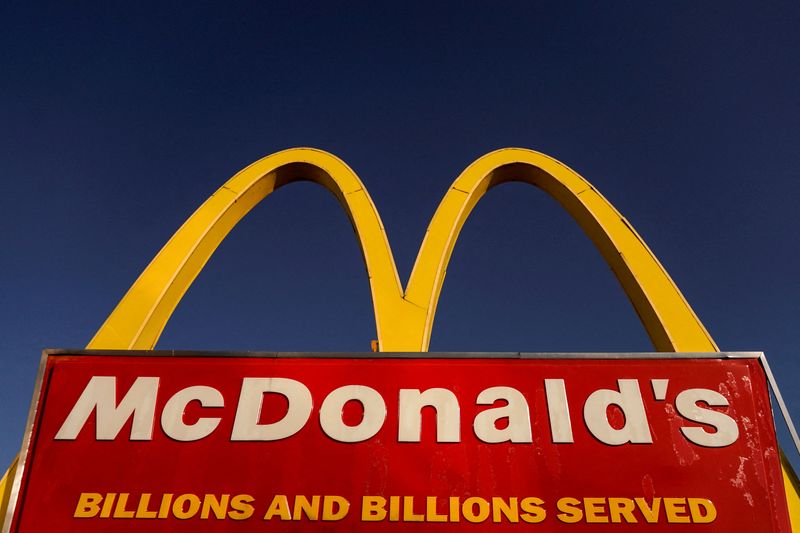By Praveen Paramasivam and Hilary Russ
(Reuters) -McDonald's Corp on Tuesday reported comparable sales and profit above market expectations even as expenses soared, as the burger chain benefited from steady online demand, new product launches and higher prices.
The chain's global same-store sales jumped nearly 10% in the second quarter compared with expectation of a 6.5% rise.
Even so, the Chicago-based company said it is considering whether to add more discounted menu options because soaring inflation - particularly in Europe - is leading some lower-income consumers to "trade-down" to cheaper items and to buy fewer big combination meals, Chief Financial Officer Kevin Ozan said during a call with investors.
To draw customers, McDonald's (NYSE:MCD) introduced online-exclusive offers that boosted its app downloads, while the launch of new offerings, including Spicy Chicken McNuggets and Chocolatey Pretzel McFlurry, has also helped.
McDonald's shares rose about 1.8% in early trading.
U.S. sales rose 3.7% for the quarter, versus estimates of about 3%, driven by menu price increases in the high single digits, Ozan said.
The number of customers per order declined. Drive-thru sales, which soared during the pandemic, dropped back to pre-pandemic levels as restaurants reopened, he said.
Meanwhile, McDonald's expects its costs for food and paper to be 12% to 14% higher through this year.
Margins for company-operated restaurants "were hampered by significant commodity and wage inflation as well as rising energy costs," Ozan said. "We expect these inflationary pressures will continue to impact margins for the remainder of the year."
Total expenses surged 25% to $4.01 billion in the second quarter, weighing on net income, which nearly halved to $1.19 billion, or $1.60 per share.

The results included $1.2 billion of charges related to the sale of its business in Russia. On an adjusted basis, earnings per share of $2.55 exceeded estimates of $2.47, according to Refinitiv data.
Total revenue fell 3% to $5.72 billion and missed expectations of $5.81 billion, hit by weak demand in China due to COVID-19 resurgences and related government curbs.